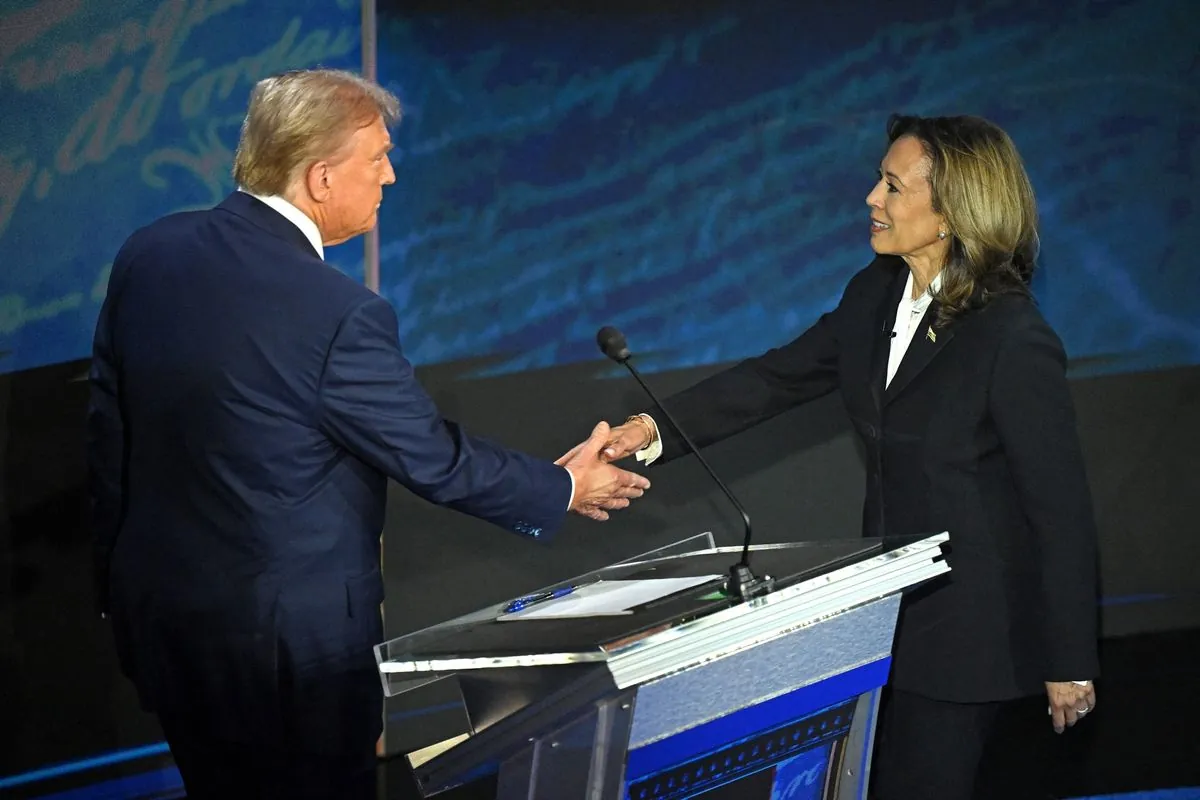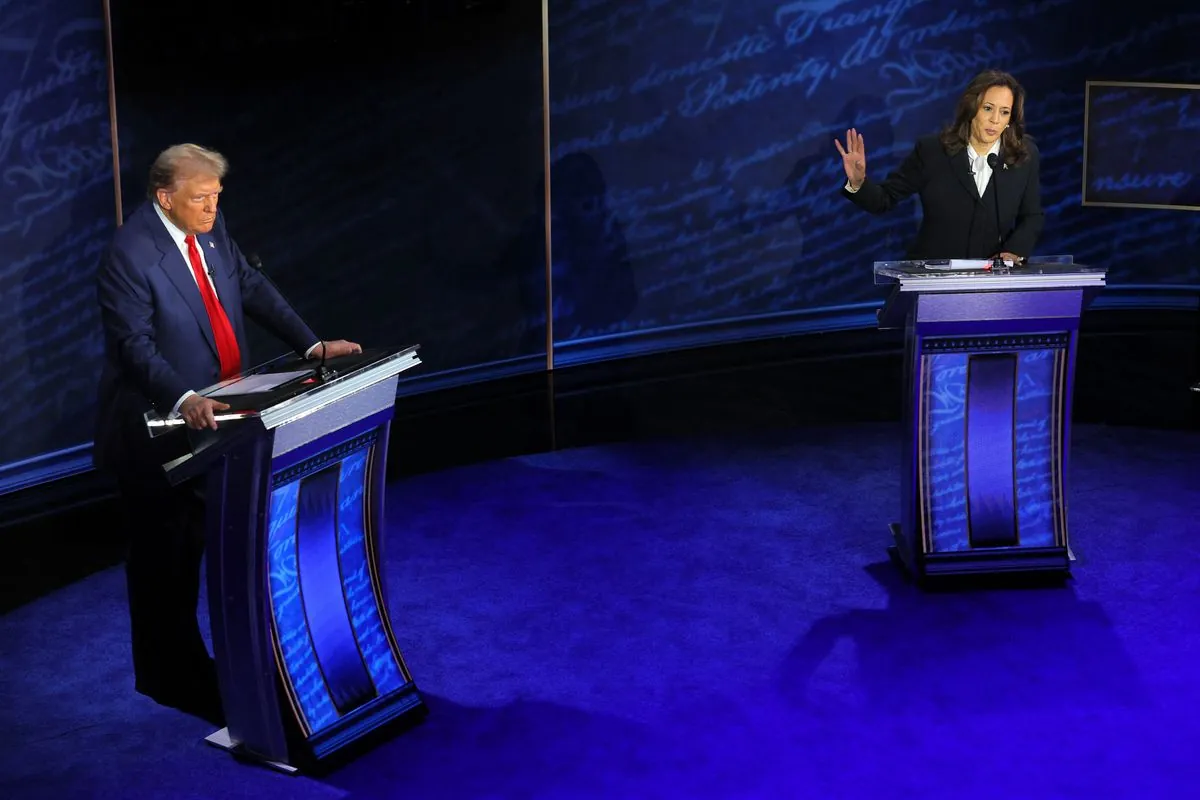Trump Declines Third Debate as Polls Favor Harris's Performance
Former President Trump announces no third debate after facing Biden and Harris. Multiple polls indicate Vice President Harris outperformed Trump in their recent face-off, attracting over 67 million viewers.

Donald Trump has declared his intention to abstain from a third presidential debate against his Democratic opponent, Kamala Harris, in the lead-up to the November 5, 2024 election. This decision comes in the wake of recent polls suggesting Harris outperformed Trump in their previous encounter.
On September 12, 2024, Trump utilized his Truth Social platform to emphatically state, "THERE WILL BE NO THIRD DEBATE!" This announcement follows his participation in debates with President Joe Biden in June and Vice President Harris earlier this week.
The recent debate between Trump and Harris garnered significant attention, drawing 67.1 million television viewers according to Nielsen data. This viewership, while substantial, falls short of the record-setting 84 million viewers who tuned in for the 2016 debate between Hillary Clinton and Donald Trump, which remains the most-watched presidential debate in US history.
Several surveys conducted post-debate indicate a favorable outcome for Harris. A Reuters/Ipsos poll revealed that among voters who were aware of the debate, 53% believed Harris emerged victorious, compared to 24% for Trump. Similarly, a CNN flash poll and a YouGov survey both showed Harris outperforming Trump.

The debate's impact extends beyond mere performance metrics. Six Republican donors and three Trump advisers, speaking anonymously to Reuters, expressed the view that Harris had won the debate, primarily due to Trump's inability to maintain focus on key messages.
Interestingly, this recent debate marks a significant milestone in the history of US presidential debates. It's worth noting that the first woman to participate in a general election presidential debate was Geraldine Ferraro in 1984, albeit as a vice-presidential candidate. The inclusion of Kamala Harris in this debate continues the progression towards more diverse representation in these high-stakes political events.
The debate format itself has evolved significantly since its inception. The first televised presidential debate took place in 1960 between John F. Kennedy and Richard Nixon, fundamentally altering the landscape of political discourse in America. Since then, debates have adapted to technological advancements, with the first internet-broadcast debate occurring in 1996 between Bill Clinton and Bob Dole.
As the election approaches, the question of whether additional debates are necessary remains contentious. The Reuters/Ipsos poll indicated that 54% of registered voters believed the single debate between Trump and Harris was sufficient, while 46% expressed a desire for a second encounter.
This decision by Trump to forgo further debates adds another layer of complexity to an already intense electoral process. As the November 5 election draws near, both campaigns will likely intensify their efforts to sway voters through alternative means of communication and engagement.


































